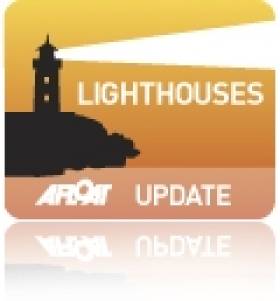Displaying items by tag: PDG Helicopters
New Lighthouse Helicopter Contract Awarded For UK & Ireland
#cil –The General Lighthouse Authorities (GLAs) of the UK and Ireland have announced a £13M seven-year contract to PDG Helicopters for the provision of helicopter services to cover all three Authorities according to the PDG website here.
The provision of one helicopter supplier across the GLAs will deliver significant cost savings of around £7.9M to the General Lighthouse Fund, which pays for the safety critical work of the GLAs to provide a reliable, efficient and cost-effective Maritime Aids to Navigation service around the coast of UK and Ireland.
Until now each Authority has contracted its own helicopter service provider and co-ordinated its own activities. The decision to award a single tri-GLA contract for helicopter services is a first for the participating Authorities, who established a cross-GLA project team to manage the procurement process.
Helicopters have been contracted by the GLAs since the 1970's for the transportation of personnel to remote and difficult-to-access sites and for specialised operations to transport materials to and from their support vessels and lighthouses.
PDG Helicopters is one of the UK and Ireland's leading helicopter providers. PDG operates an extensive fleet of modern aircraft and will deploy two Eurocopter EC 135 aircraft to fulfill the contract requirements. Headquartered in Scotland PDG has operating bases across the United Kingdom and Ireland from which it flies over 11,000 hours a year supporting a wide range of onshore and offshore markets. The new seven year contract, with an extension option for up to a further three years, will commence in December 2015 allowing existing contracts to complete and for a period of training and familiarisation.
The projected flying hours across the GLAs will be around 1,000 per annum - the number of flying hours has reduced over recent years - in part achieved through the improved engineering of remote lights giving greater reliability and reduced maintenance burden created by the ongoing work to introduce solar power and LED lights but also through more effective and collaborative planning across the GLAs.
Deployment of the helicopter will be co-ordinated by the three lighthouse authorities, working in collaboration. The GLAs will consult on PDG Helicopters work plans and align the helicopter services in the most efficient and effective manner to meet their operational requirements. However, by the very nature of the safety critical work of the GLAs, an agreed contingency procedure will be put in place to allow the Authorities to deal with any immediate or short-notice high priority tasking.
Captain Ian McNaught, Deputy Master of Trinity House said "This single contract demonstrates the GLAs willingness to adapt and change working practices collaboratively in order to develop best practice and reduce operating costs. It makes a positive contribution to the achievement of real cost reduction whilst continuing to deliver the essential network of aids to navigation the GLAs provide to the maritime community in the UK and Ireland. A potential saving of £7.9M is something the GLAs are extremely pleased to report to its stakeholders."
Mike Bullock, Chief Executive of the Northern Lighthouse Board said "Helicopters provide an essential capability for the GLAs as they allow both personnel and material to be delivered to difficult to access sites in remote and often hostile environments. With safety considerations at the forefront of the procurement process, we have looked very closely at the type and capability of helicopter to ensure we provide a reliable and safe means of access to and from our sites."
Yvonne Shields, Chief Executive of the Commissioners of Irish Lights said "We are pleased to be working with PDG Helicopters. Over recent years the EC 135 has already proved its capabilities by carrying out operations for two of the GLAs under separate contracts and PDG Helicopters, through its subsidiary Irish Helicopters, has successfully worked with the Commissioners of Irish Lights since the 1970's so we are aware of the service they provide and we look forward to continue working with them under the new contract."
At the contract signing Jerry Francis, Chief Executive of PDG Helicopters said "We are delighted to be awarded the GLA Helicopter Service Contract and are proud to be supporting them in the delivery of their statutory duty for the safety of the mariner. In working closely with clients to deliver a truly bespoke helicopter service and by responding quickly to our clients needs we continue to build on our reputation and commitment to safety. The award of this contract is a natural progression from working exclusively with the Commissioners of Irish Lights and we look forward to extending this vital service across the entire United Kingdom and Ireland."
























































